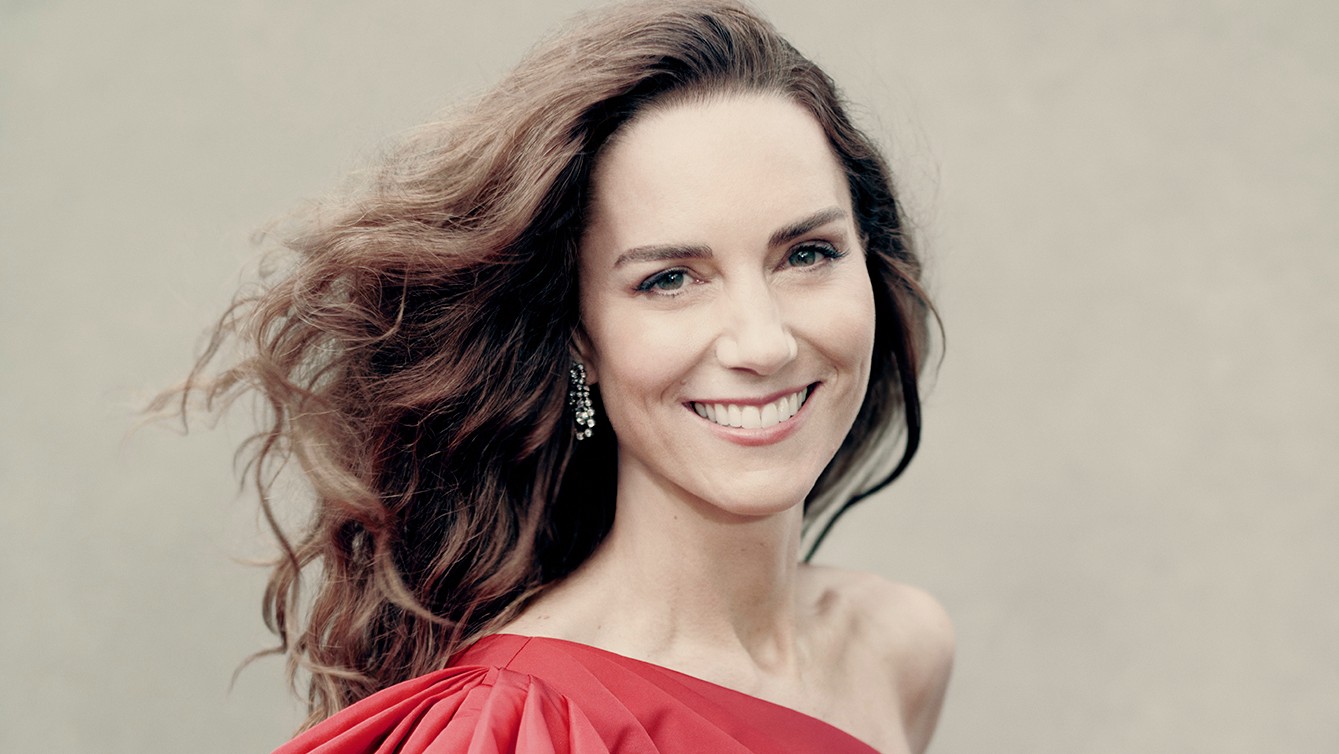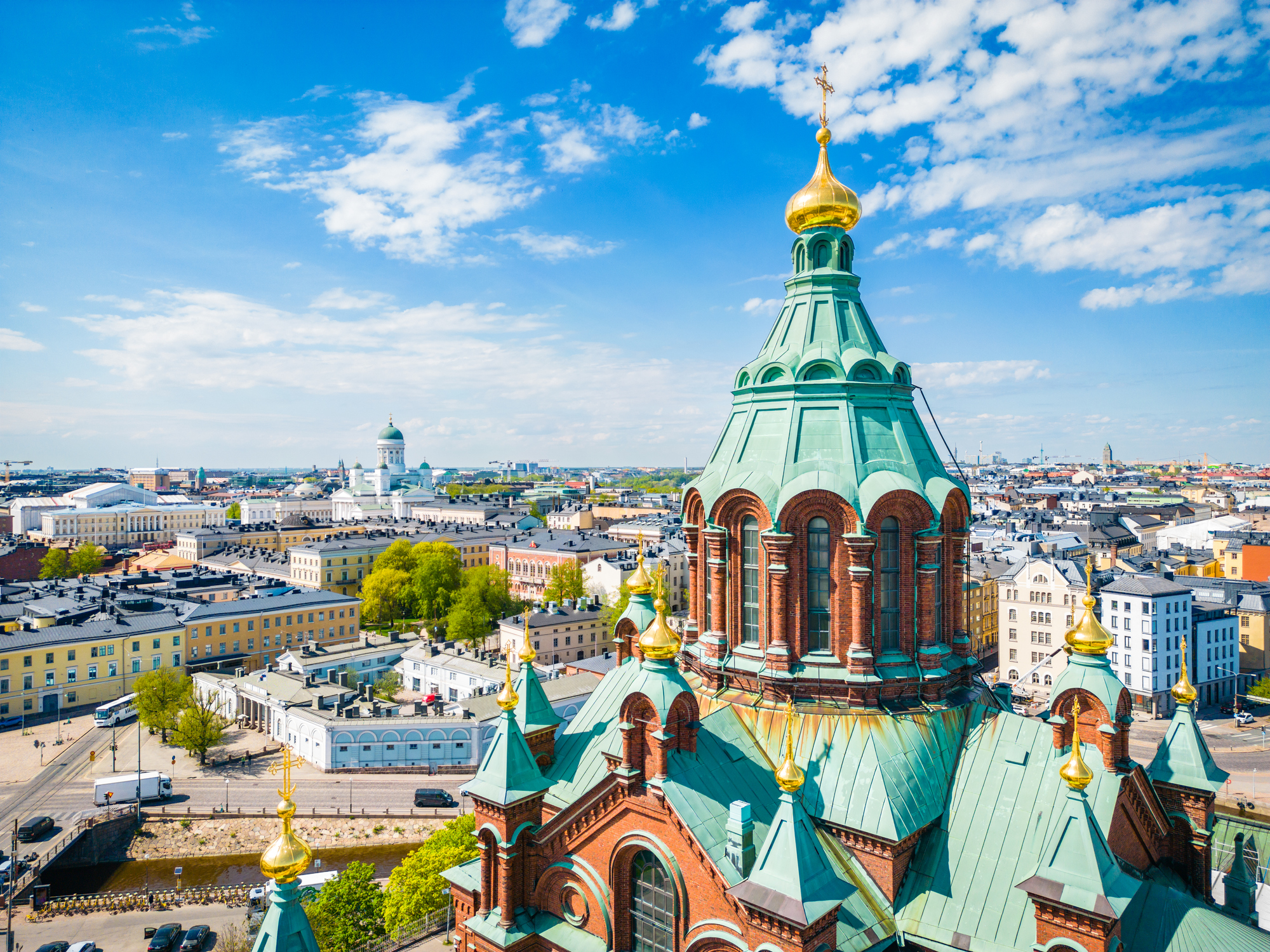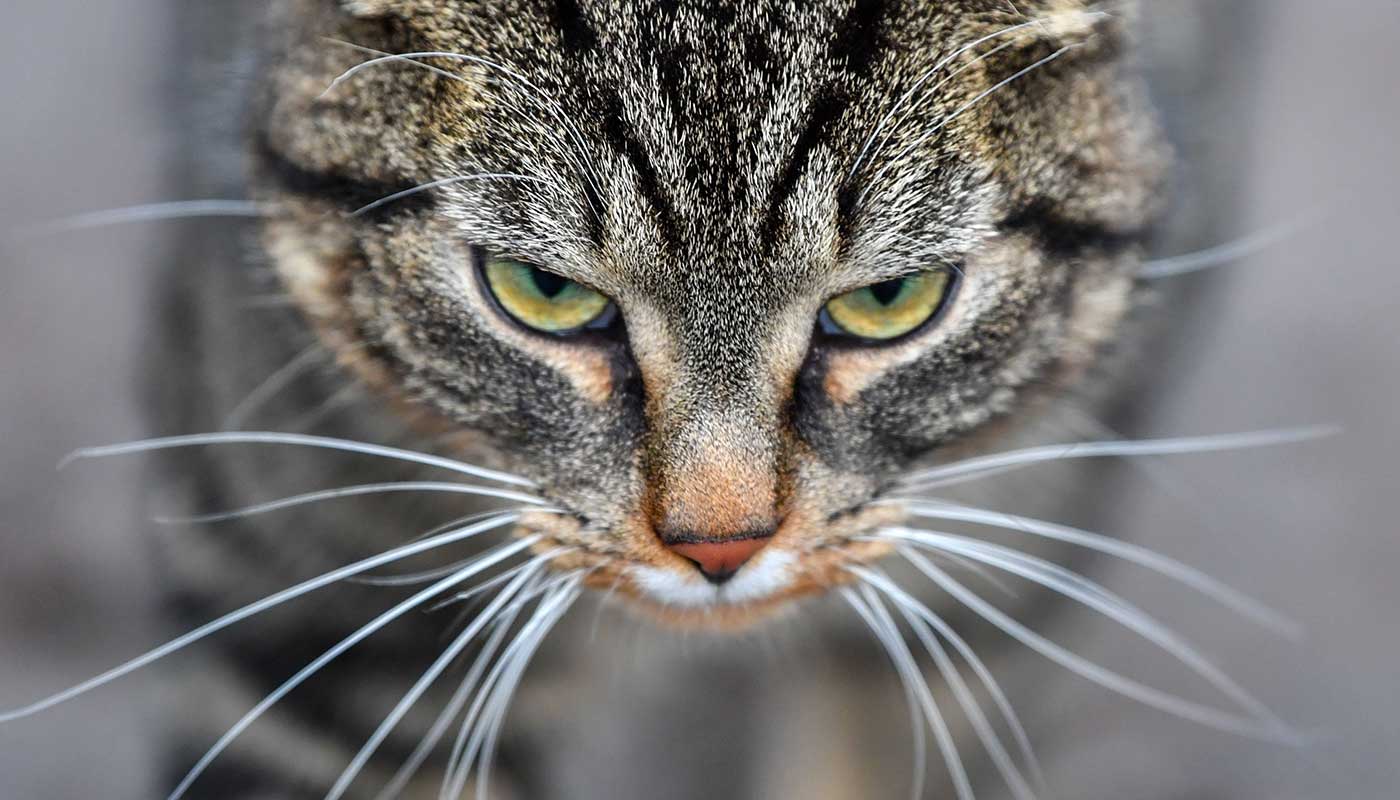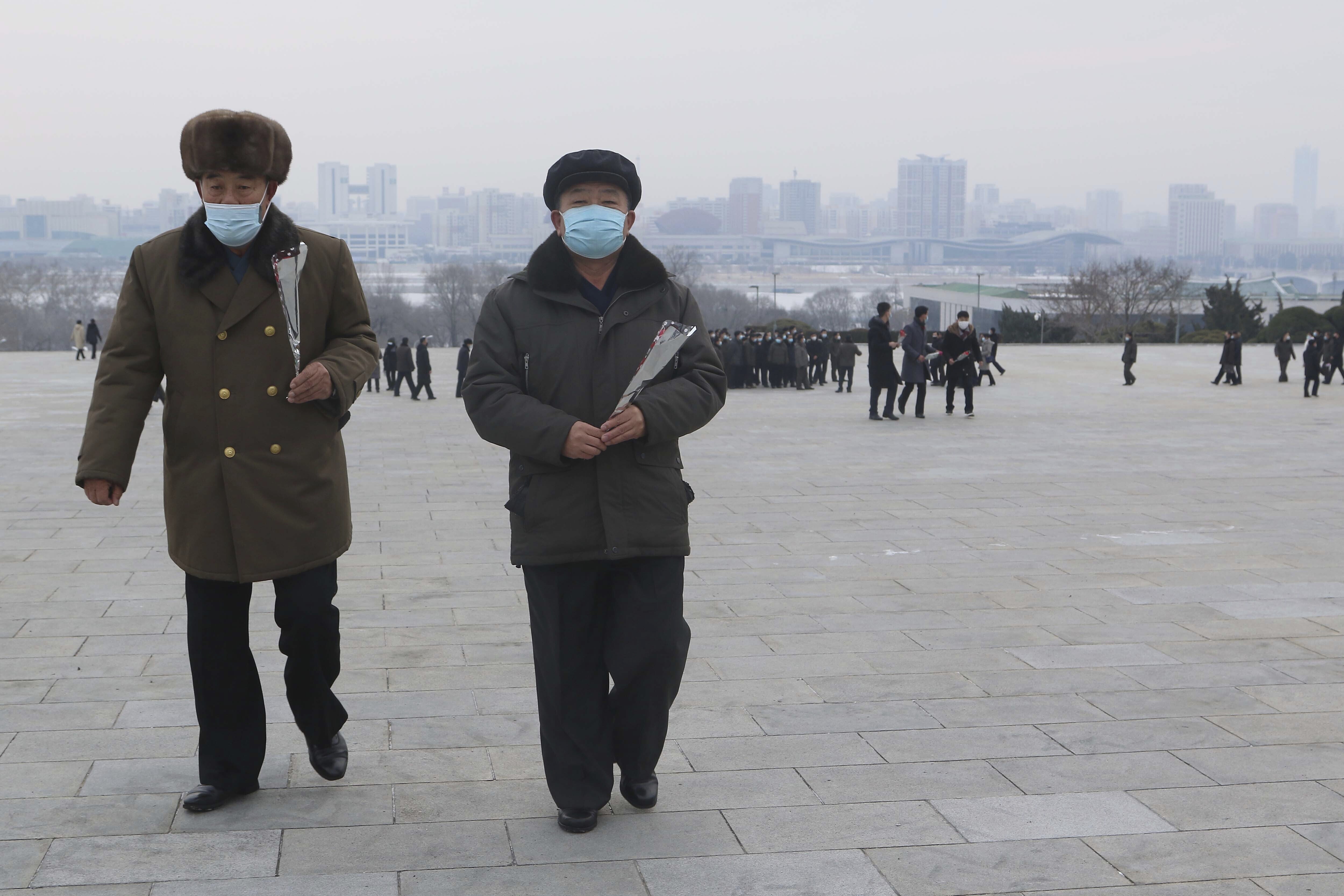‘We have finally embraced the future Princess of Wales after 25 years mourning the previous one’
Your digest of analysis from the British and international press

A free daily email with the biggest news stories of the day – and the best features from TheWeek.com
You are now subscribed
Your newsletter sign-up was successful
1. Waity Katie turned into Saint Kate Middleton… and had the last laugh
Clemmie Moodie for The Sun
on a royal coming of age
Cynics may say that the Duchess of Cambridge’s PR machine has gone “into overdrive of late”, says Clemmie Moodie in The Sun. Pictures of Kate Middleton released to mark her 40th birthday received “fawning blanket-coverage”, but more easy to miss was “the apparent early beatification of a woman once disparagingly dismissed as ‘Waity Katie’”. Now, however, “Saint Kate can do no wrong”. Maybe it’s because people have seen her “perennially smiling” on all manner of occasions, or that members of the public “have finally embraced the future Princess of Wales after almost 25 years of mourning the previous one”. The “sloshed days” and “high street labels” of Kate’s previous life “are largely gone”. The Duchess has “doggedly and blessedly pursued the ‘never complain, never explain’ school of thought”, and she “maintained a dignified silence” when she was “mocked” in the early days of her and William’s relationship for “hanging around waiting for a ring”. “To her one-time detractors,” says Moodie, Kate “is most definitely having the last laugh”.
The Week
Escape your echo chamber. Get the facts behind the news, plus analysis from multiple perspectives.

Sign up for The Week's Free Newsletters
From our morning news briefing to a weekly Good News Newsletter, get the best of The Week delivered directly to your inbox.
From our morning news briefing to a weekly Good News Newsletter, get the best of The Week delivered directly to your inbox.
2. Where were you on 20 May 2020?
Victoria Richards for The Independent
on alleged rule-breaking
The Covid-19 death toll was 166 people on 20 May 2020, a date “that shall now be forever etched in public consciousness”, writes Victoria Richards for The Independent. The elderly, new mothers, single people, “the sick and the dying and the sad – we all suffered” during the first national lockdown, she writes. The “heartfelt examples” of people’s memories from that day “feel endless” and “that’s because they are”. “We all made sacrifices” and “even the so-called ‘small’ losses felt huge to those who experienced them”. Reflecting on them now, says Richards, “serves only to highlight the stark hypocrisy of the government’s apparent actions. Compare and contrast, if you will, the email to 100 employees” reportedly inviting them to an outdoor gathering at No. 10 Downing Street on this day. Richards describes her experience of that period as “the worst and darkest period of my life to date”, but still it was “not as terrible as many people had it”. It’s “good” that civil servant Sue Gray will “likely now widen her investigations” to include this alleged gathering. “We’ll have to wait and see exactly who will be partying when she returns her report.”
A free daily email with the biggest news stories of the day – and the best features from TheWeek.com
3. Why Emmanuel Macron’s war on the unvaccinated makes electoral sense
Ido Vock for The New Statesman
on critical comments
“As the pandemic enters its third year, goodwill towards the unjabbed is in short supply,” says Ido Vock for The New Statesman. Last week, Emmanuel Macron “declared his intention to continue to ‘piss off’ the unvaccinated”. The French president’s “war on the unvaccinated” is “a political calculation”, says Vock. His “incendiary comments” were “designed to appeal to his supporters, who are among the most likely to support a tough line on the unimmunised”. His words also “forced his rivals for this year’s presidential election to openly take a position if they wished to criticise his crude comments”, which would put them in “an inherently electorally risky position”. “Standing up for the rights of the unvaccinated can have only limited electoral appeal” in France, as in many countries “where immunisation rates are about as high as they can be expected to go without significant compulsion”. Macron’s words may prove “beneficial as the campaign for April’s election gets going in earnest”.
4. Ultra low rates have created a generation addicted to debt
Gerard Lyons for The Telegraph
on cheap money
The “imminent cost of living crisis” has prompted a “recognition that the Bank of England was asleep at the wheel last year and did not act early enough to curb inflationary pressures”, says Gerard Lyons at The Telegraph. “Have low interest rates created broader problems than politicians and people realised?” Lyons asks. Since the 2008 global financial crisis, “we have become addicted to cheap money policies”, which has impacted “people’s attitude towards saving and borrowing”. As a result a “generation of young people have spent their entire adult lives with interest rates at rock bottom”, and “the culture of low rates has exacerbated inequality”. This is “perhaps the biggest concern”, with “cheap finance” feeding “imbalances between home-owners and renters, between asset rich and asset poor”. Higher wages are also “part of the challenge”. The idea of “buy now and pay later is increasingly seen as more viable, because low rates mean this is not seen as debt”. Young people take on these loans “by choice, because rates are low”. Interest rates “look set to rise this year”, says Lyons, but many of these issues “look set to persist long into the future”.
5. Violence inequality shames America
Zaid Jilani for Unherd
on unacknowledged dangers
“Contrary to the claims of ‘police abolitionists’, residents of poor communities often want more and better policing” in America, writes Zaid Jilani for Unherd. The reason is in part “because they happen to live under a far greater threat of violent crime than other communities”. They also “don’t have nearly as many resources to defend themselves as upper-income communities”. Jilani says that “just as we track inequality on axes like income, wealth and health care”, public safety in the most and least dangerous neighbourhoods should also be tracked. “Violence inequality exists virtually everywhere in the United States, but it is particularly dramatic in some areas”. Addressing this inequality “is one of the most important things that the Democratic Party could do for underprivileged people” and could bring “meaningful change”. The main obstacle the party faces is “political”, but there are signs that things are changing. What’s clear is that “it’s almost impossible to address a problem we can’t even admit exists”, and Jilani says “those who profess to care about the disadvantaged need to acknowledge that violence inequality is a deep and growing problem”.
-
 5 blacked out cartoons about the Epstein file redactions
5 blacked out cartoons about the Epstein file redactionsCartoons Artists take on hidden identities, a censored presidential seal, and more
-
 How Democrats are turning DOJ lemons into partisan lemonade
How Democrats are turning DOJ lemons into partisan lemonadeTODAY’S BIG QUESTION As the Trump administration continues to try — and fail — at indicting its political enemies, Democratic lawmakers have begun seizing the moment for themselves
-
 ICE’s new targets post-Minnesota retreat
ICE’s new targets post-Minnesota retreatIn the Spotlight Several cities are reportedly on ICE’s list for immigration crackdowns
-
 ‘Irony’ as Zoom calls staff back to office
‘Irony’ as Zoom calls staff back to officefeature And other stories from the stranger side of life
-
 The U.S. veterinarian shortage crisis
The U.S. veterinarian shortage crisisSpeed Read With an anticipated shortage of 15,000 vets by 2030, it will be harder to get care for pets
-
 Boris Johnson shocks UK by resigning from Parliament
Boris Johnson shocks UK by resigning from ParliamentSpeed Read
-
 Company teaches mask-wearers to smile again
Company teaches mask-wearers to smile againfeature And other stories from the stranger side of life
-
 Bees delay flight for three hours
Bees delay flight for three hoursfeature And other stories from the stranger side of life
-
 Global happiness has been 'remarkably resilient' over the past three years
Global happiness has been 'remarkably resilient' over the past three yearsfeature
-
 Ministers considered killing all cats during pandemic
Ministers considered killing all cats during pandemicfeature And other stories from the stranger side of life
-
 North Korea imposes 5-day lockdown on capital to fight 'respiratory illness'
North Korea imposes 5-day lockdown on capital to fight 'respiratory illness'Speed Read